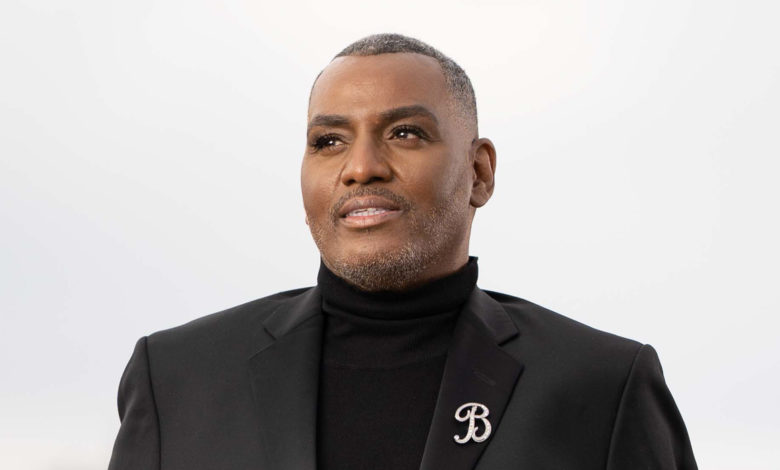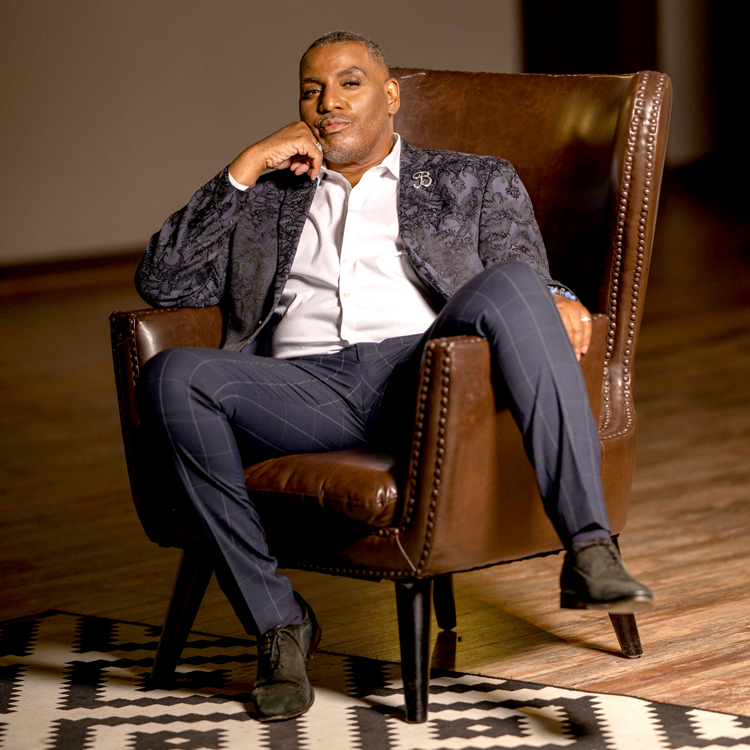
An Interview with Barry Barnes
The Houston Health Department’s administrative coordinator describes the City’s pandemic strategy.

Describe your job at the City.
As a member of the Houston Health Department staff for the City of Houston, I see myself as one who serves as the conduit between the community and government. My core responsibilities and efforts include an eclectic mix of branding and marketing, with a sprinkling of public relations. Be it through continuity of narrative, experience-centered events, appropriate use of logos, graphic-campaign development, or vendor coordination and engagement, it is my commitment and core responsibility to ensure that we are aligned with the needs of our citizens. At the Houston Health Department, “We protect the H.” My role is to support the efforts that make us one community, and to ensure that the words and deeds that are central to the mission of the Houston Health Department are conveyed in a meaningful, timely, and relevant manner to all Houstonians, regardless of their race, income, orientation, or socio-economic background.
How long have you been there?
I have been with the Houston Health Department for 14 years, but I have a lifetime of experience beginning in my younger years growing up and working in New York City with the rise of the HIV epidemic. At that time, it was new and there was no name to describe it. There were even fewer resources to navigate it and alleviate its devastating impact on families and communities. There were so many people [who were suffering], and it became very important for me to help people through that complicated time. Fortunately, I was in a position where I was both willing and able to be a positive resource. That began my official commitment to this work, and my hands-on training with tactile community outreach. [All of those decades’ worth] of experiences have prepared me for this moment in time.
Has anything in your past work prepared you for the COVID-19 pandemic, or helped you deal with this crisis?
We have all been challenged to reflect, reimagine, and repurpose our values, talents, and contributions. Upon reflection, the complex skills required to navigate, support, lead, pivot, help, and inform Houstonians through COVID-19 is ever-evolving and challenging. I feel my rich life and diverse work experience have prepared me for this moment and time. In the heartaches and victories of this crisis, as well as the moments of humanity and hope, I believe I have become stronger and wiser. It is neither easy nor effortless, but I am certain that my past work allows me to effectively assist during this moment, as well as help prepare all Houstonians for the future and what may come.
What has been the worst part of your job during the pandemic, and the best?
The worst part for me happens when I leave the job and I go home at night. I cannot help but reflect on those individuals who are without access to appropriate resources, and feeling helpless. This is a global crisis, but Houston is my home and I feel such deep compassion for the devastation Houstonians have experienced due to loss of jobs, inadequate healthcare, as well as the unforeseen toll that this pandemic has brought to their mental health and families.
On a positive note, the part that brings me comfort is that we have a vaccine and there is hope. Moreover, I feel encouraged that I am in a position where I can support the vaccination efforts. I am committed to doing everything in my power to support the rollout of the vaccine in a safe, equitable, and timely manner.
Have you had any personal experiences with relatives or friends suffering with COVID-19?
COVID-19 does not discriminate. Sadly, it is impossible to not be impacted personally by this pandemic. Be it employment, hospitalization, or simply the stress from worrying, I too have several friends that have been directly affected. We are all in this together, and in some ways everybody will experience the impact of COVID-19 at some point in time. It is not just an event; it is a global pandemic with long-term impacts that we have not seen in our lifetime.
Have you received the vaccine yet?
Yes, as a first responder, I have received the Moderna vaccine. I understand that many people have concerns [about its safety], but we must heal together. I have taken both shots, I feel great, and I am dedicated to my role to help move us all forward. I am striving to lead by example, and I hope that everyone feels as comfortable as I did when it is their time to receive the vaccine.
How long do you think it will take to vaccinate enough of the population to achieve herd immunity?
The time that it will take to achieve herd immunity is a technical question, and complicated to answer. On purely a personal note, I hope we would be able to realistically reach that goal [during] 2021. Professionally, and as a public health liaison, I know this is an evolving process and a moving target. Consequently, it is essential that we all rely on the subject-matter experts such as Dr. Fauci and the World Health Organization for guidance.
[Even without getting into] the conversation regarding global travelers, policies, and international protocols, achieving herd immunity within the United States is a huge undertaking. Logistically, it requires safe vaccine production, long-term monitoring, and the timely release of vaccines across the various states. In addition, I agree that a comprehensive, coordinated, and universal COVID-19 vaccine rollout would be essential to the success of this effort.
In the meantime, our current PSA campaigns “Don’t Stop. Don’t Forget” as well as “Better. Together.” speak to our individual capacities to mask up, wash our hands, social distance, and get tested. Until we reach herd immunity and everyone can be vaccinated, it is essential that we continue to do our part to minimize the spread and keep each other safe.
Does it frustrate you that, according to a University of Houston survey, one in five Texans don’t want the vaccine?
This is a global pandemic, [so not only do we have to] convey the value of vaccines to Texans, but we must reach a consensus across the board. It is not frustrating that people are afraid or have justifiable reservations regarding the vaccine. I believe it is our shared responsibility as health workers, media outlets, and community members to speak to those concerns and help unite the efforts toward our collective goals and humanity. This pandemic impacts individuals, homes, neighborhoods, states, and nations. With that stated, it is both daunting and frustrating to address those genuine concerns while [also being forced to] overcome a divisive “us-versus-them” narrative.
What is the most positive thing you can say about your life right now?
One of my favorite quotes, which I recently discovered and truly love, is “Learn to be done. Not mad, not bothered, just done. Protect your peace at all costs.” During the COVID-19 pandemic, this quote speaks volumes about perspective. Consequently, the most positive thing I can say about my life right now is that I am happy. I am fortunate to be able to continue to surround myself with positive and good people who strive for excellence daily.
For more information about the Houston Health Department, visit houstontx.gov/health.
This article appears in the March 2021 edition of OutSmart magazine.
Will you help us keep community news alive in Houston? For over 30 years, OutSmart has been Houston’s trusted LGBTQ+ media. Support us with a tax-deductible donation through the OutSmart Foundation—every contribution makes a difference.










